Going Green Pays Off

Going Green Pays Off - Connecting Values to Economic Purpose
CEDEC is working with public, private, and civil society stakeholders to create a Roadmap of promising economic development opportunities to be pursued in 2026-2028. The identification of these opportunities stems from CEDEC’s report, Overview of Quebec’s Economic Landscape (OQEL), and a recent series of Collaborative Economic Development Dialogues (CEDDs), designed to discuss the findings of the report.
CEDEC’s research activities have identified promising economic development initiatives across various economic sectors. In a nine-part series, CEDEC is highlighting some of these initiatives and the leadership, determination, and innovation of their champions who successfully brought these businesses and social enterprises to life.
There are large and small companies, social enterprises, and public sector organizations that know “going green” is beneficial for the planet and advantageous for future economic growth and development.
Green initiatives are driving sustainability, real cost savings, creating new opportunities for community engagement and value creation, and providing a competitive edge in the marketplace.
Governments are also helping by enacting policies that support sustainability, such as Canada’s participation in the Paris Agreement and Quebec’s 2030 Plan for a Green Economy.
AANGEN
Transforming Food Waste into Creative Meals
Gurbeen Bhasin leads Aangen, a Canadian social enterprise focused on food and cleaning services. Bhasin actively uses food rescue to power her business, turning would-be food waste into creative meals.
Using misshapen carrots or slightly bruised apples does not affect the quality or nutrition of the meals, and refilling cleaning product bottles drastically reduces plastic waste in the housekeeping arm of her business.
These simple actions not only reduce Aangen’s environmental impact but also cut costs. That’s something Bhasin’s clients appreciate.
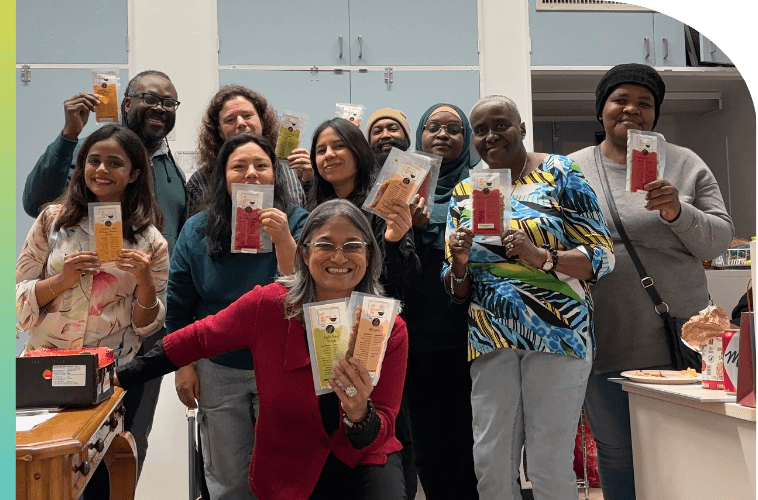
Bhasin has been committed to sustainability for 25 years. She also notes that the situation has worsened since she got involved in the green economy.
“The world cannot afford to turn a blind eye anymore,” she said. “Our planet needs us. She’s screaming for our help.”
Businesses are increasingly listening. “Greening” is becoming an economic benefit. Bhasin herself actively seeks out business partners with similarly green goals.
COTA
Harmonizing Sustainable Tourism with Cree Philosophy & Culture
For Robin McGinley, Executive Director of the Cree Outfitting and Tourism Association (COTA), the roots of sustainability go back even further.
“Our mission is to develop and implement a collective vision for a world-class, sustainable tourism industry that’s in harmony with our Cree culture and values,” she explained. “It’s not new. We’ve been doing it for a long time.”
The organization represents members from across Eeyou Istchee in Northern Quebec. Eeyou Istchee means “the people’s land” and is the traditional territory of the Cree Nation, spanning 350,000 square kilometres, located nearly 800 km north of Montreal.
COTA prioritizes community needs in its tourism development decisions and consultations. For example, McGinley commissioned a recent feasibility study on electric vehicle charging stations in northern communities in part for the tourism benefit, but equally because the upgrade would benefit residents.
There is a balance to achieve between consulting with communities and actively looking for ways to build in concrete sustainability elements. For example, early consultations with Cree Elders advised against fishing for sport because it does not align with Cree values. COTA does not sponsor local fishing derbies.
Developing better habits works, too. COTA hosts eco-responsible events by providing re-usable dishes, washing stations, and waste sorting. Infrastructure also offers possibilities. Buildings like the Aanischaaukamikw Cree Cultural Institute in Oujé-Bougoumou, Quebec, are LEED certified and several regional sports complexes are heated using geothermal energy.
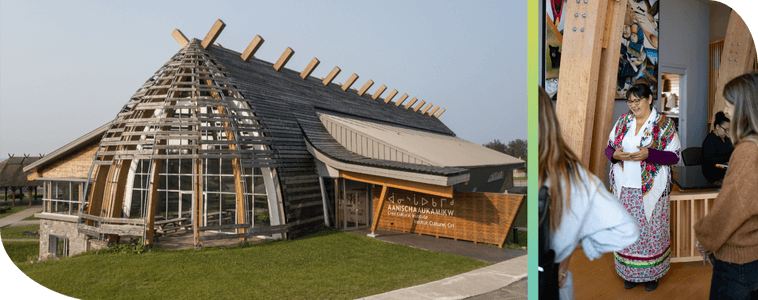
TINYBOX SYSTEMS
Reimagining Modular Housing Design
Innovation paired with sustainability is a source of economic development opportunity. A stellar example is TinyBox Systems, a startup focused on building modular homes. The company identified the housing market as a focus for green innovation that can also help to tackle the affordability crisis.
With models from a cube to a four-season bunkie, the company offers users packages that co-founder Pooya Saberi describes as having “IKEA level” installation requirements, meaning that most customers can assemble the housing units on their own or with general labour. TinyBox Systems is currently piloting projects in eight sites across North America, from off-grid cabins in Quebec to supplying bunkies for a workforce in the Canadian Arctic.
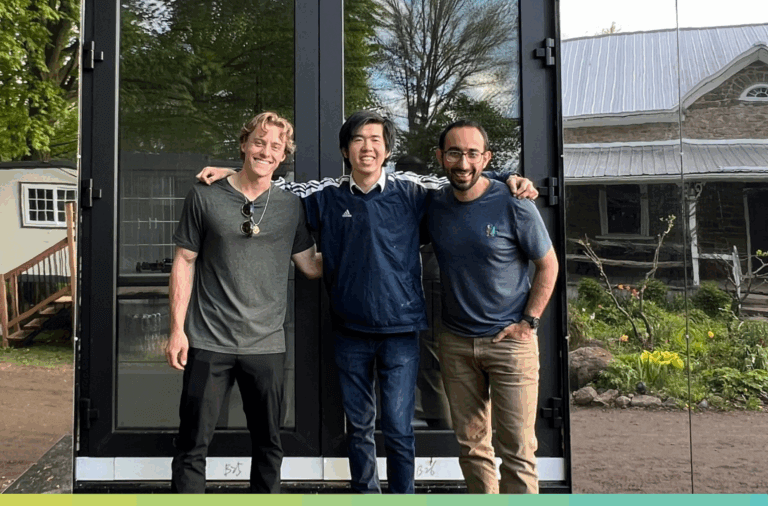
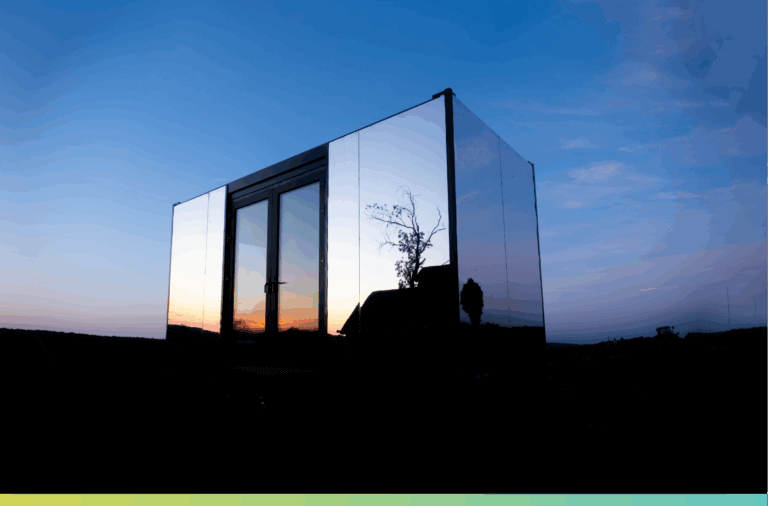

The company aims to reduce both operational and embodied carbon emissions. By using flat-pack materials and on-site assembly, TinyBox Systems minimizes waste and transportation costs. For Saberi, affordability and sustainability go hand in hand.
“Being more sustainable generally means you’re also saving money, and that’s really our vision. We have that in mind, and we are trying to just go one step further into building net-zero homes. Or even net-positive homes that can contribute both to addressing the housing crisis, but also to the climate crisis,” he said.
SYNERTIUM
Growing the Green Economy Requires Expert Support
If organizations like COTA have been pursuing green goals for decades, others require additional support. That’s where consultancies like Synertium come in. They help by coaching clients on sustainability initiatives, managing projects, and measuring results.
Synertium CEO Marc-André Bélisle emphasizes a holistic approach, helping clients consider social and economic impacts alongside green goals.
Synertium helps businesses assess their sustainability maturity, engage employees, and identify opportunities for improvement. For example, documenting existing practices is a quick win, as is standardizing green policies across departments.
“There are a lot of informal processes and policies, and you cannot change what you don’t measure,” said Bélisle.
Bélisle noted that businesses are increasingly aware of the importance of the green economy and sustainable economic development practices. “Business owners are sensitive to what they read, and they feel a sense of responsibility for the opportunity to lead their sector of activity and to take part in change,” he said.
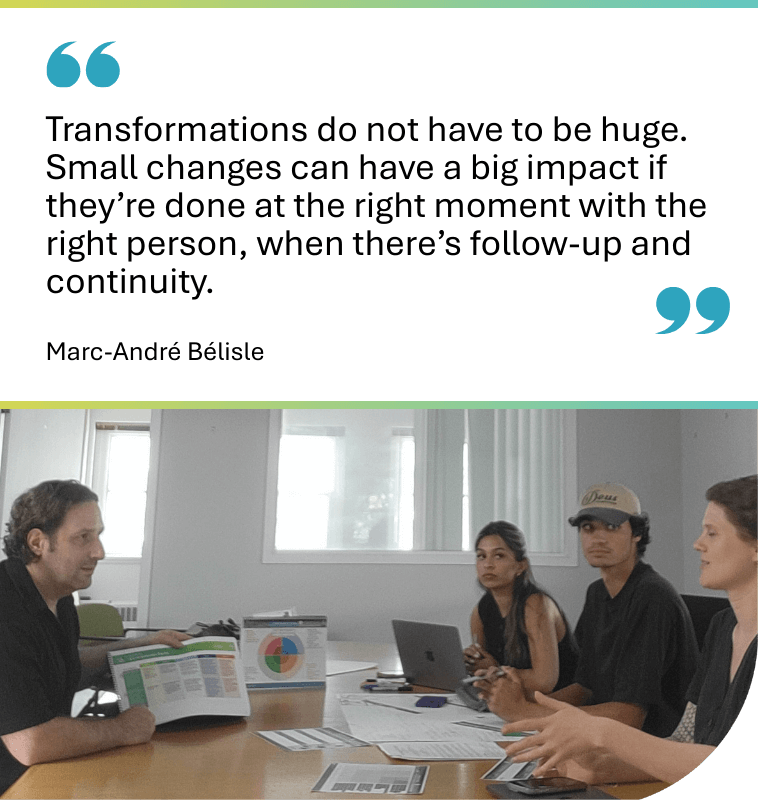
Small Steps Lead to Big Impacts

Aangen’s Bhasin is campaigning to reduce plastic packaging in the food industry.

COTA’s McGinley is encouraging a switch to refillable soap dispensers in regional hotels.

Bélisle at Synertium helps clients to pursue “quick wins” that demonstrate the impact of sustainable choices, such as evaluating the capacity to decrease non-essential waste production and energy consumption for activities.

At TinyBox Systems, Saberi is enthusiastic not only about his new housing concept, but about the potential of encouraging retrofits and upgrades to existing homes for greater environmental efficiency.

|
|
Thank you for Signing Up |

Stay in the loop!
Sign up to be notified of future articles published in CEDEC’s Collaborative Economic Development series.
